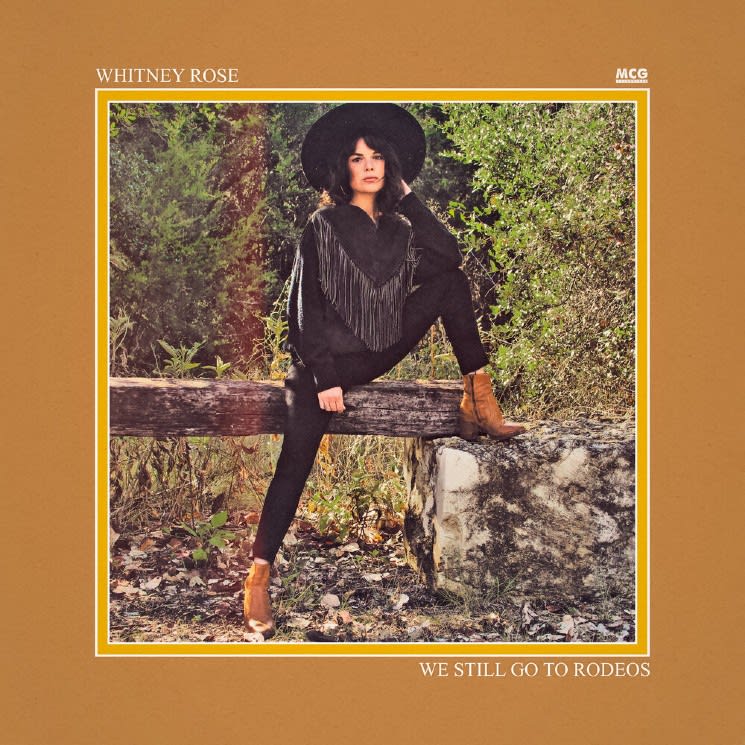Whitney Rose is a true 21st-century cowgirl — modern and referential, quick-witted and complex. Her songs are typically heartfelt and winking in equal measure, fresh in their view but timeless in subject matter and feeling.
Her fourth record, We Still Go to Rodeos, is the work of a consummate country star stretching the mould in subtle ways. It's a raucous collection of deeply-felt country — a journey through many lives. And while its electric, dust-blown sound doesn't push into any new directions, it's a fittingly rich setting for Rose's outsized personality and reedy, expressive voice.
The Spanish guitar-laced "A Hundred Shades of Blue" is a highlight, as is the driving, Lucinda Williams-indebted "I'd Rather Be Alone". The album's sound runs the gamut, from the bluesy slither of "You'd Blame Me for the Rain" to the jazzy coffeehouse strum of the title track.
The record's highest peak is the biting "Believe Me, Angela," written in the grand tradition of "Jolene" — a complicated conversation between two women that's equal parts funny and sad. However, Rose's tale of infidelity sidesteps the tender pleading of Parton's classic, making the journey from vengeance to forgiveness in just over three minutes.
It's another example of Rose's knack for upending narrative expectation — she's a country artist interested in reviving tradition and making it new, of using the tools of the past to make music for today.
(MCG)Her fourth record, We Still Go to Rodeos, is the work of a consummate country star stretching the mould in subtle ways. It's a raucous collection of deeply-felt country — a journey through many lives. And while its electric, dust-blown sound doesn't push into any new directions, it's a fittingly rich setting for Rose's outsized personality and reedy, expressive voice.
The Spanish guitar-laced "A Hundred Shades of Blue" is a highlight, as is the driving, Lucinda Williams-indebted "I'd Rather Be Alone". The album's sound runs the gamut, from the bluesy slither of "You'd Blame Me for the Rain" to the jazzy coffeehouse strum of the title track.
The record's highest peak is the biting "Believe Me, Angela," written in the grand tradition of "Jolene" — a complicated conversation between two women that's equal parts funny and sad. However, Rose's tale of infidelity sidesteps the tender pleading of Parton's classic, making the journey from vengeance to forgiveness in just over three minutes.
It's another example of Rose's knack for upending narrative expectation — she's a country artist interested in reviving tradition and making it new, of using the tools of the past to make music for today.
